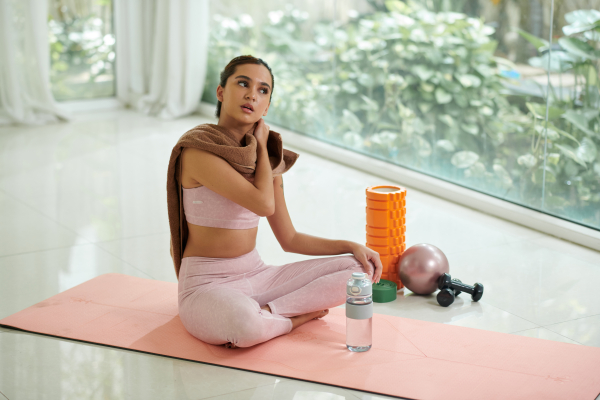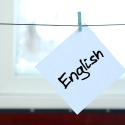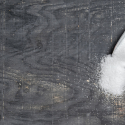- Europa
-
- Amstetten(7)
- Bad Schallerbach(1)
- Baden(4)
- Berg(1)
- Braunau am Inn(5)
- Bregenz(3)
- Bruck an der Mur(1)
- Graz(4)
- Hartberg(1)
- Innsbruck(5)
- Kemmelbach(1)
- Kitzbühel(4)
- Klagenfurt(5)
- Krems an der Donau(1)
- Kufstein(5)
- Leibnitz(1)
- Lienz(1)
- Liezen(1)
- Linz(5)
- Oetz(1)
- Punitz(1)
- Radstadt(1)
- Salzburg(5)
- St Polten(2)
- Steiermark(1)
- Steyr(1)
- Steyregg (1)
- Traun(3)
- Vienna(26)
- Villach(5)
- Völkermarkt(1)
- Wels(5)
- Wien(1)
- Wiener Neustadt(4)
-
- Aalst(1)
- Aarschot(2)
- Affligem(1)
- Anderlecht(5)
- Antwerp(11)
- Antwerpen(1)
- Arlon(6)
- Ath(2)
- Aubange(5)
- Bastogne (2)
- Blankenberge (1)
- Bruges(5)
- Brussels(15)
- Charleroi(5)
- Deinze(3)
- Dendermonde(1)
- Diest(2)
- Etterbeek(5)
- Geel(1)
- Genk(5)
- Gent(6)
- Geraardsbergen(1)
- Grimbergen (2)
- Hasselt(5)
- Heusden- Zolder(2)
- Ieper(1)
- Izegem(1)
- Knokke(4)
- Kortrijk(2)
- La Louviere(2)
- Leuven(5)
- Liege(4)
- Limburg(4)
- Lommel(1)
- Mortsel(1)
- Oostende(1)
- Turnhout(1)
-
- Chelyabinsk(1)
- Dubna(4)
- Gelendzhik(1)
- Irkutsk(1)
- Kaliningrad(1)
- Kazan(4)
- Krasnodar(3)
- Krasnoyarsk(1)
- Maykop(1)
- Moscow(50)
- Nizhny Novgorod(4)
- Novosibirsk(1)
- Omsk(1)
- Penza(1)
- Rostov-on-Don(2)
- Saint Petersburg(13)
- Samara(1)
- Saratov(1)
- Serpukhov (2)
- Sevastopol(3)
- Sochi(5)
- Stavropol(1)
- Surgut(1)
- Tyumen(2)
- Ufa(2)
- Vladivostok(3)
- Yekaterinburg (11)
-
- Alicante(8)
- Barcelona(113)
- Benalmadena(1)
- Benidorm(7)
- Castellón de la Plana(1)
- Denia(1)
- Estepona(1)
- Fuengirola (3)
- Ibiza(49)
- Jerez de la Frontera(1)
- Lanzarote(1)
- Las Palmas de Gran Canaria(5)
- Madrid(57)
- Malaga(9)
- Marbella(48)
- Murcia(1)
- Oviedo(1)
- Palma de Mallorca(48)
- Puerto Banus(3)
- Seville(1)
- Tarragona(1)
- Tenerife(7)
- Torrevieja(3)
- Valencia(9)
- Vigo(1)
- Zaragoza(1)
- Worldwide
How to Minimize Sweating in Hot Weather: Doctor's Advice
 Excessive sweating can sometimes indicate serious health issues. Let's dive into why we sweat in the heat and how to manage it effectively with expert recommendations.
Excessive sweating can sometimes indicate serious health issues. Let's dive into why we sweat in the heat and how to manage it effectively with expert recommendations.Why Do We Sweat?
Sweating is our body's natural cooling mechanism. When our body temperature rises, sweat glands release water onto the skin's surface. As this water evaporates, it takes heat away from the body, helping to regulate our internal temperature. This process is crucial for preventing overheating.
To avoid dehydration, follow these guidelines:
Drink water consistently throughout the day, not just when you feel thirsty. Aim for at least 50 ml per kg of body weight in hot weather.
Avoid beverages with caffeine and alcohol, as they can increase dehydration due to their diuretic effects.
Choose water over sugary drinks.
Replenish lost electrolytes during intense exercise or heavy sweating with drinks like mineral water.
When Does Excessive Sweating Indicate a Health Issue?
In some cases, heavy sweating can signal underlying health problems. This condition, known as hyperhidrosis, comes in two types:
Primary or focal hyperhidrosis: This type is characterized by excessive sweating in specific areas, such as the palms, underarms, or soles. It often stems from an overactive nervous system and usually occurs symmetrically, often triggered by stress. While primarily a cosmetic issue, it doesn't pose a direct health threat.
Secondary hyperhidrosis: This type involves overall excessive sweating, particularly noticeable at night, known as the "wet pillow" syndrome. Various health conditions can cause this, including:
Hormonal changes (menopause in women and andropause in men)
Thyroid disorders
Diabetes
Infectious diseases like tuberculosis
Systemic connective tissue diseases
Malignant tumors
Lymphoma (a type of cancer)
If you wake up drenched in sweat, it's crucial to see a doctor for a comprehensive evaluation to catch any potential illnesses early.
Preventing Excessive Sweating
Apply Antiperspirant at Night
Use antiperspirants, not deodorants, as the former block sweat glands, reducing both sweat and odor. Apply at night when sweating levels are lowest.
Avoid Foods and Drinks That Trigger Sweating
Soft drinks, coffee, and spicy foods can stimulate adrenal glands, raising body temperature.
Wear Natural Fabrics
Opt for loose-fitting clothes made of natural fibers like cotton and linen. Synthetic fabrics trap heat and don't absorb sweat, which can be hazardous in hot weather. Ensure your feet can "breathe" by avoiding thick socks and bulky footwear during warm months.
Consult a Specialist
If self-management fails, seek medical advice. Remember, excessive sweating can be a symptom of various medical conditions, so don't ignore it.
By understanding the reasons behind sweating and taking proactive steps, you can stay comfortable and healthy even in the heat.









